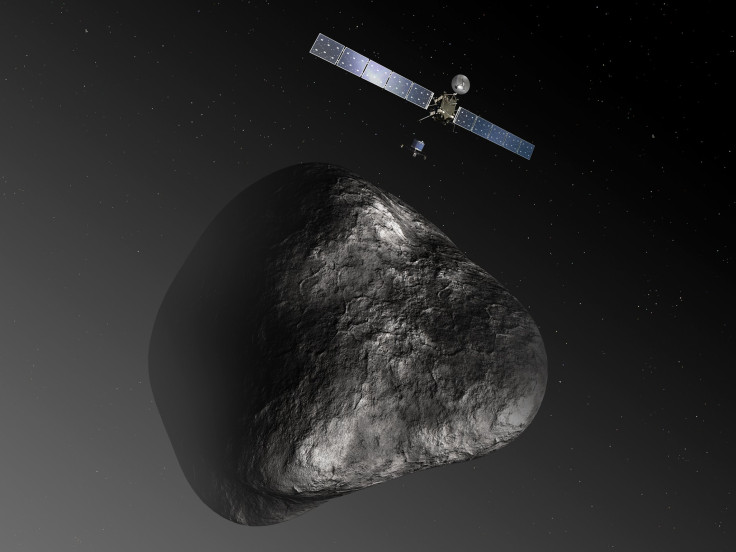Comet-Hunting Rosetta Satellite Sets Date To Land On A Comet For Nov. 11, 2014
The European Space Agency is planning to shake its Rosetta satellite from its slumber and has set a date for Nov. 11, 2014 to land on a comet. ESA has targeted comet 67P/Churyumov–Gerasimenko. Prior to the satellite landing on the comet, the space agency has launched the “Wake Up Rosetta” campaign which let the public upload videos and the top submissions will be beamed to the satellite.

Rosetta was first launched on March 2, 2004, and has been in deep space hibernation, near Jupiter, since June 8, 2011. During this first leg of its mission, Rosetta traveled around the sun five times but that was only the beginning of its ambitious mission. Rosetta will wake from hibernation on Jan. 20, 2014 and ESA expects the satellite to start communicating with Earth a few hours after waking up. The satellite will complete its first comet rendezvous maneuver in May 2014.
By Aug. 2014, Rosetta will arrive at comet 67P/Churyumov–Gerasimenko and the Philae lander will set down on the comet on Nov. 11, 2014. The satellite will be the first spacecraft to orbit and land on a comet, notes ESA. With Philae on the comet, Rosetta will trail the comet for several months.
Landing on a comet is no easy task with ESA saying, “Many of the complex navigation and landing maneuvers need to take place automatically with absolutely no room for error. The issues and complications of sending a small spacecraft halfway across the solar system and soft-land on a small comet are immense.”
Some of the factors ESA must account for during the mission include surviving extreme temperatures and navigating a low altitude orbit around the comet, including its gas jets and factoring the weak, rotating gravity field of the comet, notes ESA. Rosetta’s mission objectives include observing the comet throughout its orbit and how the sun affects its nucleus while Philae is equipped with sampling tools, a spectrometer, gas analyzer, sensors and sound experiments to gather data on the structure of the comet’s nucleus.
According to the ESA, “Rosetta’s task is to study comets, which are considered the primitive building blocks of the Solar System. It will help us understand if life on Earth began with the help of comet seeding.” Comets are billions of years old and also give researchers a look at the early universe.
The Associated Press reports the space agency is deciding between three different landing sites and the team is working to solve two glitches, a small helium leak and an issue with the wheels used to turn the spacecraft, ahead of Jan. 20.
© Copyright IBTimes 2024. All rights reserved.






















